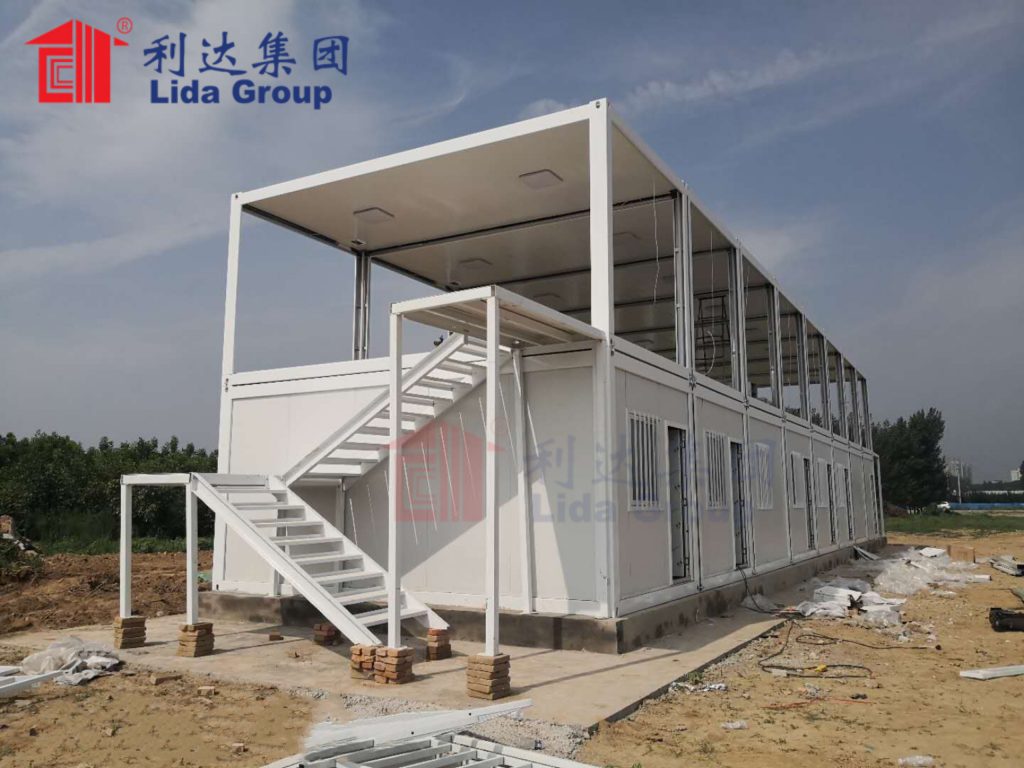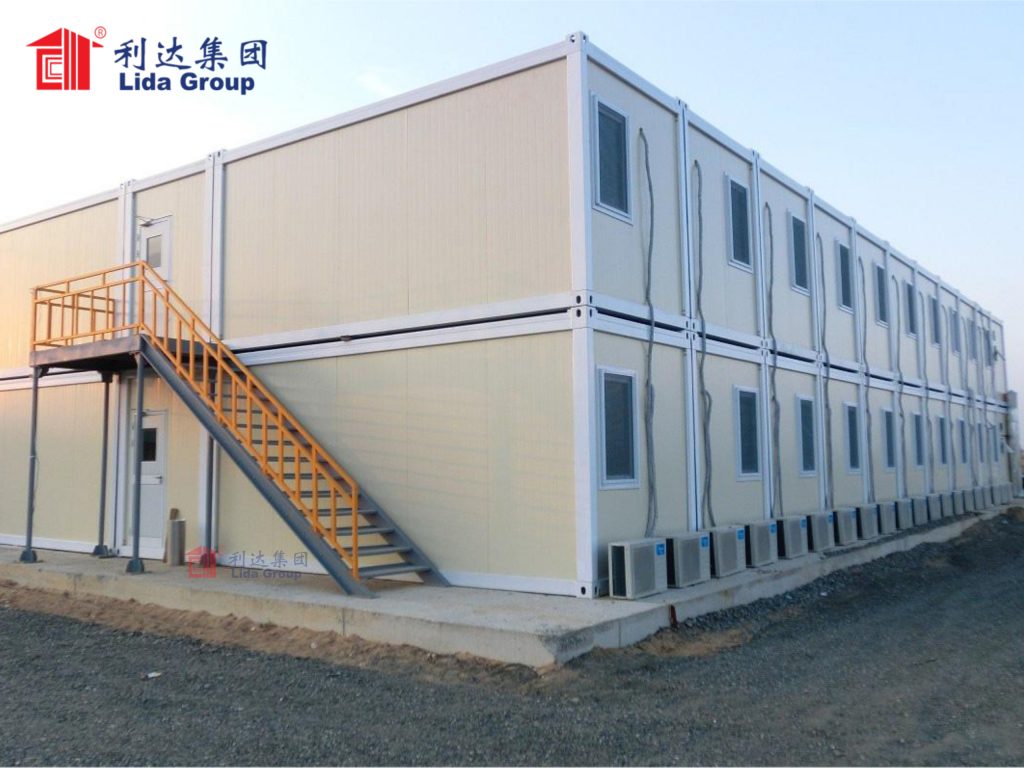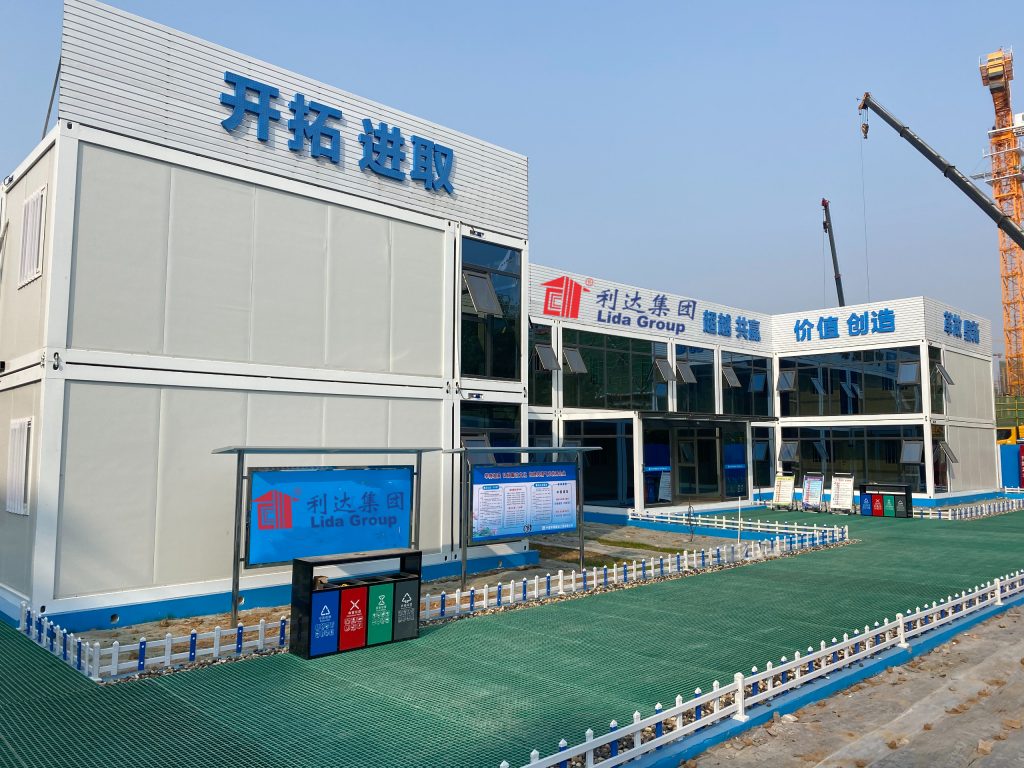Following a series of earthquakes, floods and fires that destroyed homes and displaced thousands across northern China over the summer, one international relief organization is spearheading innovative efforts to provide timely transitional shelter. Project Hope has launched a pilot program3⁄4in cooperation with major Chinese construction firm Lida Group3⁄4that utilizes standardized modular container homes fitted with essential water, power and sanitation facilities.
The modified shipping container shelters are being rapidly deployed to disaster-impacted areas to house vulnerable groups like the elderly, disabled and families with young children until permanent reconstruction can be completed. Prefabricated and easily transportable, the container modules can be set up on temporary settlement sites within days to get displaced populations out of makeshift camps and into covered shelter with basic necessities as they start rebuilding their lives.
“After natural disasters, getting people access to safe, sanitary housing as soon as possible is absolutely critical to preventing health issues and allowing affected communities to recover,” says Project Hope China Director Zhang Yi. “By leveraging Lida Group’s expertise in modular construction and our own experience responding to crises globally, we aim to demonstrate container-based transitional housing as an efficient solution.”

According to Zhang, the containers provide secure enclosed living spaces averaging 27 square meters that can accommodate a small family unit. Each container home contains a bedroom, bathroom equipped with water and solar-powered electricity, and a combined kitchen/lounge area. Insulated walls and hurricane-reinforced construction make the structures sturdy enough to withstand subsequent storms or winter weather.
Prefabricated components like plumbing stacks, ventilation systems and solar panels are installed in pre-determined standardized configurations at Lida Group’s factories before containers are transported fully assembled to deployment sites. This pre-construction permits rapid on-site installation of basic foundations and utility hookups without delay. Water storage tanks and generators also provide backup capacity.
For this pilot initiative, Project Hope has obtained permission from authorities in Hebei and Shanxi provinces to establish transitional housing communities on vacant public lands near the hardest-hit disaster zones still under reconstruction. Working with local officials and charities, the organization aims to house up to 500 displaced households requiring temporary shelter over the coming year using the versatile modular containers.

“We’re targeting those still in makeshift tents or school gymnasiums lacking independent facilities,” Zhang notes. “Our container villages are designed to be fully sustainable communities with basic services and around-the-clock security as multigenerational families regain independence until permanent homes are rebuilt.” Each village site will contain 20 to 50 container modules arranged around shared open spaces, playgrounds and community buildings.
So far, Project Hope and Lida Group have delivered the first 160 containers—housed in 32 sets of 5 adjoining modules that can be expanded as more families register—to sites outside Xiangfen City and Jiaocheng County. Intensive planning with local partners ensured safe ground access, utility hookups, latrines and dining halls were readied beforehand to allow occupied shelters within a week of arrival.
Feedback from early residents has been positive. Retiree Cui Xiulan thanked the initiative for rehousing her family in comfort after their village was devastated by floods. “Living in a makeshift tent, conditions were difficult for my granddaughter’s health and her studies suffered,” she said. “Here she has her own proper room with electricity, and will be able to continue schooling.” Similarly, single father Li Ming praised reliable water and power supplies that allow his work-from-home embroidery business to resume operations.

Project Hope and partner charities continue registering additional families in need, with plans to establish further container communities in coming months. Lida Group is also exploring commercialization opportunities for the standardized modular system. “Given the impacts of climate-related disasters are rising, this integrated transitional housing model could potentially help address growing shelter demands worldwide after crises like earthquakes, cyclones or conflict displace large populations,” noted Lida Chairman Yin Changxu.
Over the next year, Project Hope will monitor living conditions, resident wellbeing and community development within the pilot transitional villages. Feedback will help refine the modular container design and guide sustainable resettlement strategies. With modifications like green space incorporation, communal kitchens or income opportunity structures, the shipping container shelters could evolve into long-term residences until permanent reconstruction is complete if needed. Overall, the program’s objective is demonstrating how prefabricated modular housing and local-global cooperation can rapidly and efficiently provide the secure, dignified temporary shelter critical for families’ recovery journeys after disasters.
In summary, Project Hope’s innovative partnership with Lida Group utilizes standardized modular shipping container homes to address the urgent transitional housing needs of vulnerable groups left homeless by disasters across northern China. Prefabricated with basic amenities and rapidly deployable to temporary settlement sites, the container villages are establishing secure, sustainable communities where affected families can regain independence while permanent reconstruction progresses. The pilot aims to prove this integrated model as an efficient emergency transitional housing solution globally through demonstrated community benefits, environmental resilience and localized cooperation.

Related news
-
Government initiative partners with Lida Group to rapidly install insulated mobile panel housing communities as dignified alternative shelters for victims displaced from unsafe slums targeted for redevelopment.
2024-06-18 17:38:41
-
Insurance provider approves modernized pre-engineered building techniques from Lida Group delivering wind and fire-resistant shelters for vulnerable small-scale herders as climate risks intensify traditional pastoral livelihoods.
2024-06-14 15:29:00
-
University study analyzes the material efficiency, lifespan and cost-effectiveness of pre-engineered multifunctional metal framed buildings serving integrated on-farm needs across seasons as proposed by Lida Group.
2024-06-14 13:59:01
contact us
- Tel: +86-532-88966982
- Whatsapp: +86-13793209022
- E-mail: sales@lidajituan.com


